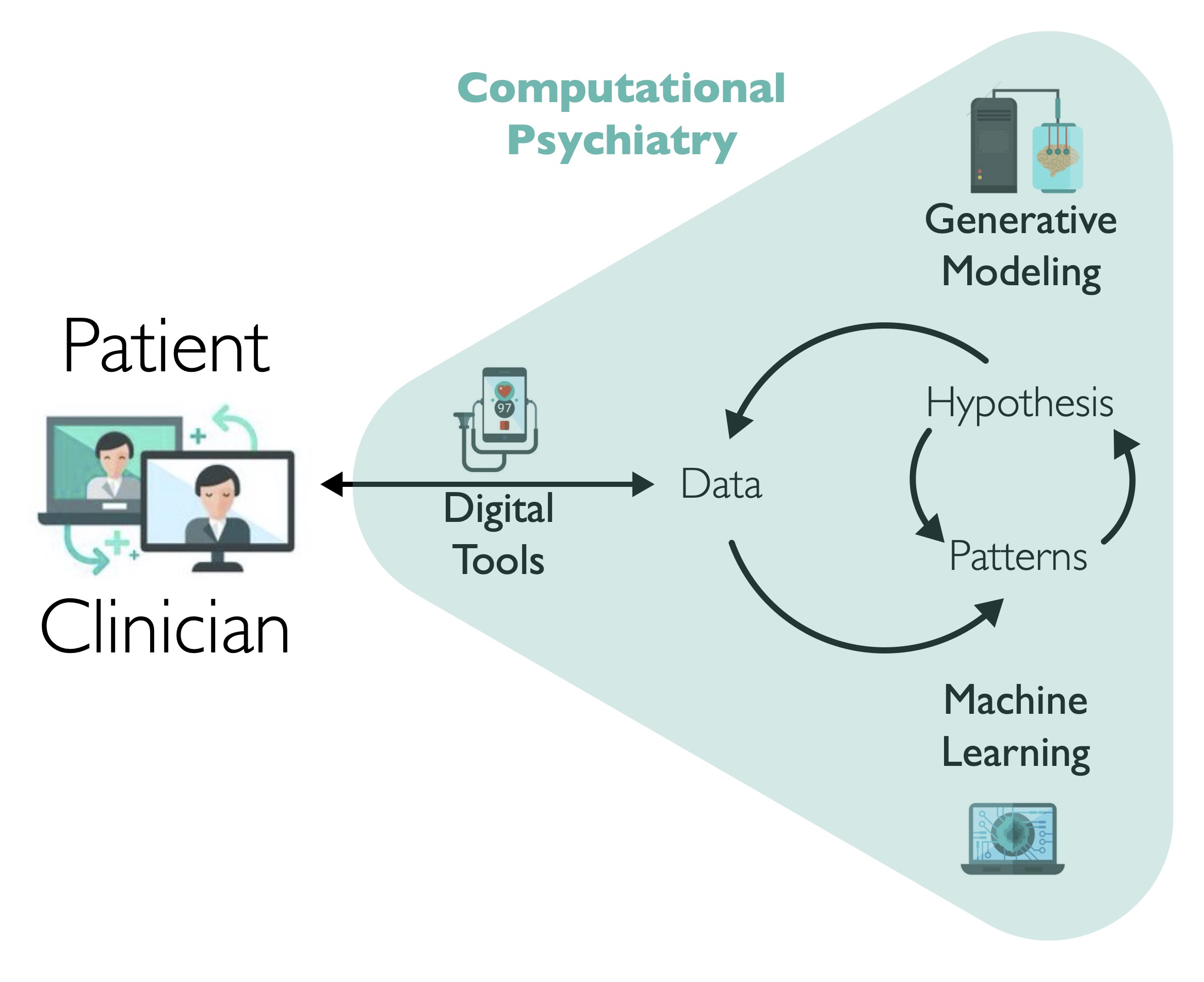The three cultures of computational psychiatry
Abstract
Introduction
Whether on the social, economic or scientific level, the digital sciences tend to change the conception of health. Computational Psychiatry, in the sense of a psychiatry based on “numbers” and information flow, has evolved rapidly.
Methods
In this article, we propose the distinction between three fields of Computational Psychiatry. A first field corresponds to “Digital Psychiatry”, i.e. a field using digital, connected, tools in the main goal to collect digital data (especially important in this period of COVID-19). A second field corresponds to “Big Psychiatry”, or Big DataPsychiatry, which deals with large amounts of data, e.g. through recent methodologies in Machine learning or artificial intelligence. A third field corresponds to “Psychiatry Modeling”, which corresponds to the utilization of formal hypothesis (i.e. mathematical models) about brain and behavior (and their dysfunctions) in line with computational neurosciences.
Results
The collection of digital data fits into methodologies of assessments and interventions in daily life, named Ecological Momentary Assessment. Of course, these digital data, which differ quantitatively and qualitatively from what psychiatry has been able to collect in its history, raise numerous epistemological and ethical questions. In the field of Big Psychiatry, most Machine learning techniques provide predictions rather than pathophysiological mechanisms, and these Machine learning techniques makes it possible to propose new delineations of disorders in a logic of stratified medicine. Lastly, resulting from studies in computational neurosciences, explanatory modeling of the brain (often called “Generative modeling”) proposes a number of theories to understand the functioning of the brain in psychiatric disorder (e.g. predictive coding, reinforcement learning, decision making theories, but also dynamical systems theories and graph and network theory).
Discussion and conclusion
This field could offer a framework to characterize the origin of the psychiatric symptoms. Obviously, these three fields are highly mutually dependent, with for instance a data access provided by Digital Psychiatry (with Digital Tools), a data processing operated by Big Psychiatry (with Machine learning) and a formalization of hypotheses offered by Generative modeling of the brain from Psychiatry Modeling. This triple organization of Computational Psychiatry offers a robust framework for personalized and precision psychiatry, articulated around statistical and mathematical methodologies, focused on prediction and explanation and using qualitatively and quantitatively varied data. However, such a framework is necessarily geared to a common subject: the patient of the psychiatric clinic.
Keywords
Artificial intelligence, Big data, Computational psychiatry, Digital tools, Machine learning, Neuroscience, Pathophysiology



Leave a Reply